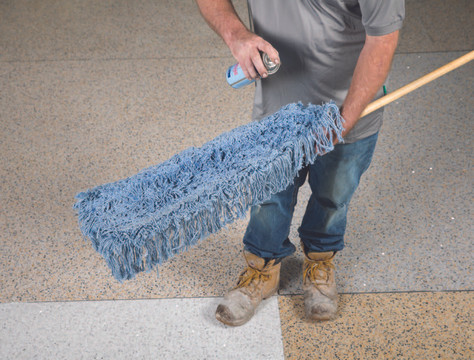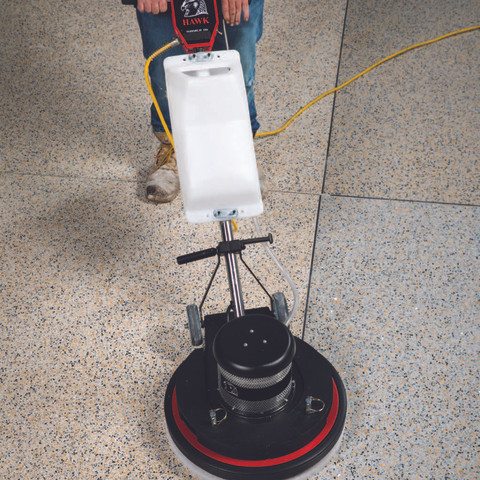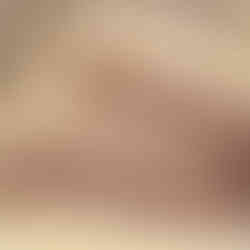Terrazzo Maintenance Guide By NTMA
- bradhedges

- Sep 24, 2020
- 2 min read
Terrazzo floors have ease of maintenance, but this does not mean that no care is required. Once you understand the care requirements in the early stages of a newly installed terrazzo
floor, you lessen the possibility of future problems and recognize the economy of maintenance of this product. Following these instructions will get your new or existing floor to look its best and will help to realize the long-term benefits of the low maintenance
cost of caring for a terrazzo floor.

To help prevent stains and damage to terrazzo, spills should be cleaned up as quickly as possible.
The following are minimum recommendations; however please note that each situation will be different.
Dust Mopping
Wet Mopping
Floor Scrubber
Spray Buffing
Control Joint, Expansion Joint or Isolation Joint
Stripping
Sealer Application
Scuff, Scratch Stain Removal
Treads, Risers, Cove
Other
Dust Mopping
Dust, dirt or other grit can lead to scratching of the finish which reduces
gloss and cleanability
Dust mopping should be done daily; sprays may be added to dust mop to
facilitate pick up
Keep dust mop clean
Change dust mop head when dirty
Wet Mopping
Wet mopping is used to remove surface dirt and liquid spills
It is important to use clean water; change water when it becomes cloudy
Clean mop often
Mop in semicircle walking backwards
Floor Scrubber
Floor should be scrubbed at least once a week
Use clean water
Use scrubber with white pad
Use of diamond impregnated pads is not recommended
Vacuum
Spray Buffing
Use to restore gloss lost due to traffic
Use products specifically designed for this purpose
Follow all directions from supplier
Control Joint, Expansion Joint or Isolation Joint
Due to concave shape or the hardness of material, joints may require extra attention
Hand clean with pad and neutral cleaner recommended by manufacturer of joint material
Stripping
Properly maintained floors rarely need stripping
Use only products designed to strip floors
Know what sealer you have on the floor
Not all sealers are strippable; check with sealer supplier
Strip floors per manufacturer’s recommendation; caution: the use of aggressive black pads may unintentionally sand or grind the floor
All old sealers must be completely removed
All residue must be completely removed

Sealer Application
Apply only sealers recommended for terrazzo; instructions of sealer supplier must be followed explicitly
Be sure floor is clean before applying sealer
Most sealers are best applied with microfiber pad
Thin coats are better than one heavy coat
Allow a coat of sealer to dry before placing another
Gloss is the result of polish and sealer; do not expect sealer to provide all the gloss
Scuff, Scratch Stain Removal
If dust mopping and wet mopping are completed, stain and scratch removal will need to be infrequent
Remove damage such as scratches and stain by the use of fine grit (100) diamond pad
If (100) diamond pads do not remove stains or scratches, call your NTMA terrazzo contractor
Do not overuse diamond pads
Treads, Risers, Cove
Some areas will not be easily maintained with power equipment; however, these must be maintained as often as the field of the floor
These areas should be maintained by hand

Other
Use maintenance products designed specifically for terrazzo
Follow the instructions of all of your NTMA product suppliers explicitly
Qualified suppliers can be found at: www.ntma.com
Do not make judgements based on recommendations to buy a product without consulting an NTMA supplier or contractor member
Call your local NTMA terrazzo contractor if the floor needs to be grouted
References:
Terrazzo Maintenance Guide by National Terrazzo and Mosaic Association
Download Brochure:





























































Comments